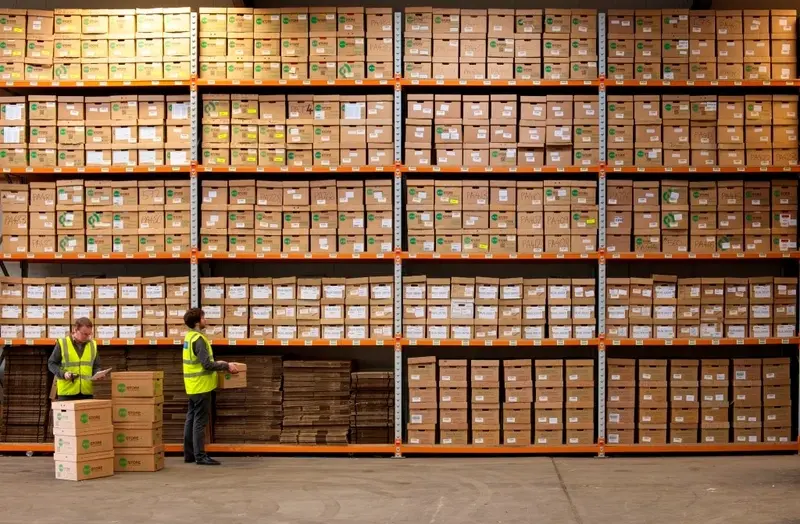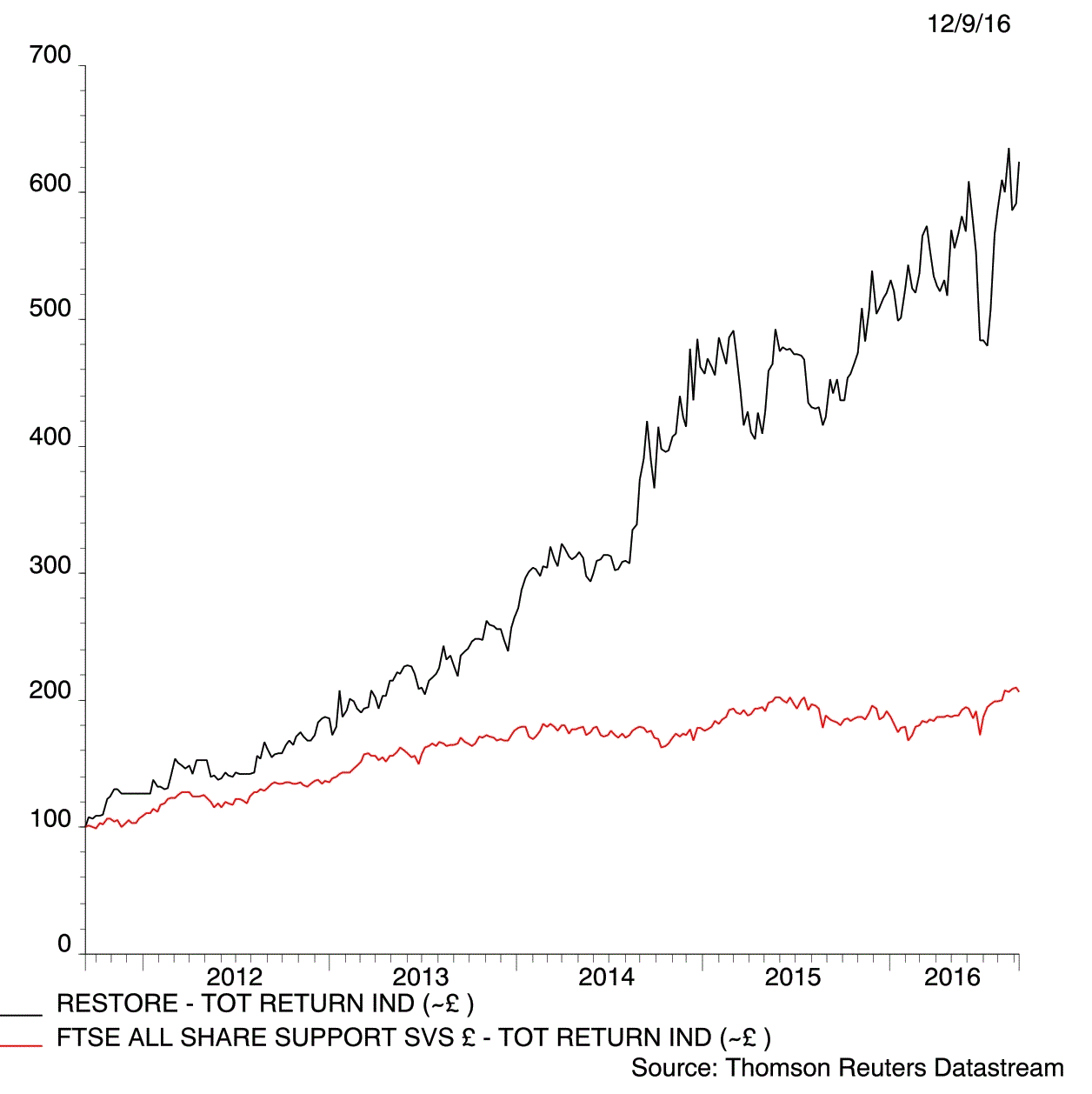
Office services provider Restore (RST) is switching its deal-making strategy from the pursuit larger acquisitions to more numerous, smaller purchases in an attempt to build scale in its key markets
Citing sector peer Bunzl (BNZL), which has a successful track record of buying and integrating smaller companies, chief executive Charles Skinner says Restore now has the scale for a similar strategy across key divisions including documents management, shredding and data scanning.
‘I suppose, having built this business from very little, we are now in a sort of Bunzl type mode where you see good synergies out of smaller deals, so the need to buy businesses 50% of our size is lower,’ said Skinner in an interview after the publication of half-year results.
‘If you look at our pattern of equity raises, we’ve done several in the last six years around the bigger deals but the smaller ones we tended to be able to fund without more equity. Given it’s not obvious where those large deals are coming from - and the small deals we can fund internally - I think the idea of us issuing a lot of equity in the future is less likely than in the past.’
Skinner had hoped to secure more deals from UK documents management market leader Iron Mountain (IRM:NYSE) after it bought Australia-based Recall, which also has facilities in the UK. A Competition and Markets Authority (CMA) investigation was expected to require Iron Mountain to divest some of its assets in the UK but the final verdict was for only one unit in Aberdeen to be sold.
There are two or three more large records management businesses up-for-grabs, Skinner added, though the timing of their availability is not certain.
Restore delivered strong growth in revenue and profit at the half-year stage, driven by a maiden contribution from one of its latest acquisitions, the documents management business of logistics outfit Wincanton (WIN) acquired in December 2015.
Net organic box growth, a measure of underlying volume trends in Restore’s documents management business, was 6%, according to Skinner. Destructions and retrievals ran a little lower than in its last financial year excluding a large contract loss with a banking customer within the acquired Wincanton unit.
Skinner said this had been anticipated before Restore's £60 million purchase of the unit.
‘Records management has always been a good business and it’s not hard to see how great it is,’ said Skinner.
‘What’s new is with our scale and reach of the scanning and shredding businesses, they are moving into a similar category, with scope to grow. We have a clear channel to market and, while very few things will be as good as records management, these new businesses are approaching it in terms of quality, scale and margins.
‘So it’s not only about the boxes.’
Restore’s house broker, Cenkos, described the last 12 months at Restore, in which it also acquired a shredding business from PHS Hygiene Services for £83.1 million, as a ‘transformational’ period.
‘Restore remains a unique investment proposition with long-term earnings visibility and a highly successful consolidation strategy which has yet to fully play out,’ wrote analyst Andrew Blain in a commentary.
Blain forecasts sales in the year to 31 December 2016 at £132.4 million, up 44%, and underlying pre-tax profit of £22.8 million, versus £16.3 million in the same period in 2015. Adjusted earnings per share is pencilled in at 17.8p, rising to 21.6p in 2017.
Key risks at Restore include its acquisition-led growth, meaning it is hard to track underlying operating progress, as well as relatively high net debt in relation to earnings before interest, tax, depreciation and amortisation (EBITDA).
Analysts at Cenkos expect year-end net debt to run as high as £81.4 million by the year-end mainly because of the acquisition of PHS, while EBITDA is forecast at £29.2 million.
Net debt-to-EBITDA is expected to decline from 2.8 in 2016 to 1.7 in 2017 as EBITDA is projected to rise and net debt fall.
Shares in Restore trade around 2% higher than before results were announced yesterday (12 Sep) at 360p versus losses on the FTSE All-Share.





